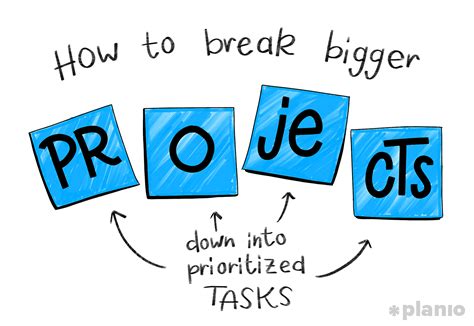Ever felt overwhelmed by the constant demands of the modern world? Struggling to balance work, personal life, and countless responsibilities can leave even the most capable individuals feeling drained and unproductive. However, there is a secret weapon that successful people possess – the art of effective time management. By harnessing this skill, you can conquer the chaos and unlock your true potential.
Time management is more than just a buzzword; it is a crucial aspect of personal and professional development. It enables individuals to prioritize tasks, make progress towards their goals, and maximize productivity. Through careful planning, organization, and utilization of resources, individuals can optimize their time and achieve great feats. Moreover, effective time management allows for better work-life balance, reduced stress levels, and increased overall satisfaction.
Discovering and implementing effective time management strategies can transform your entire outlook on life. By effectively utilizing each minute in a day, you can accomplish tasks that seemed insurmountable before. No longer will you feel overwhelmed, as you master the art of prioritization and create a structure that supports your goals. With proper time management, you will experience a renewed sense of control, empowerment, and fulfillment in all areas of your life.
Tactics for Efficiently Allocating and Utilizing Your Time

Discover actionable strategies to optimize your daily schedule and maximize productivity.
Setting Clear Objectives and Prioritizing Tasks: Boosting Efficiency and Achieving Results
When it comes to managing our time effectively and increasing productivity, one crucial aspect stands out: setting clear goals and prioritizing tasks. By defining specific objectives and determining the order of importance for our various responsibilities, we can optimize our efforts and maximize our outcomes. This section delves into the significance of setting clear goals and offers strategies for prioritizing tasks to enhance efficiency.
1. Define and Clarify Goals:
- Identify your overarching objectives and break them down into smaller, more manageable tasks.
- Clearly articulate what you aim to achieve, ensuring that your goals are specific, measurable, attainable, relevant, and time-bound (SMART).
- Regularly review and update your goals to stay aligned with your evolving priorities and aspirations.
2. Assess Task Priorities:
- Evaluate the urgency and importance of each task by considering deadlines, impact on long-term goals, and potential consequences of delay.
- Utilize prioritization techniques such as Eisenhower's Urgent-Important Matrix or the ABC method to categorize tasks based on their significance and deadlines.
- Consider delegating or eliminating tasks that do not contribute significantly to your objectives or can be handled by others.
3. Optimize Time Allocation:
- Allocate dedicated time slots for each task, ensuring that you set aside uninterrupted periods for focused work.
- Utilize productivity tools and techniques such as time blocking, Pomodoro technique, or task batching to enhance concentration and manage time effectively.
- Regularly review and reassess your schedule to accommodate unexpected events or emerging priorities.
4. Maintain Flexibility:
- Recognize that priorities and circumstances may shift, requiring adjustments to your goals and task prioritization.
- Be adaptable and willing to modify your plans, while keeping sight of the overall objectives.
- Regularly evaluate your progress and make necessary changes to stay aligned with your evolving needs and objectives.
By setting clear goals and effectively prioritizing tasks, you can optimize your time management skills, increase productivity, and accomplish your desired outcomes efficiently.
Breaking Tasks into Smaller Chunks for Enhanced Time Management

To optimize your productivity and effectively manage your time, it is crucial to break down tasks into smaller, more manageable chunks. By dividing tasks into bite-sized portions, you can enhance focus, boost motivation, and achieve greater efficiency in your daily routines.
- Break tasks down into smaller subtasks or milestones.
- Divide the tasks based on priority or complexity.
- Allocate specific timeframes for each subtask to ensure progress.
- Consider using task management tools to organize and track your smaller tasks.
- Acknowledge the sense of accomplishment when you complete each subtask.
When you break down tasks into smaller chunks, it becomes easier to maintain concentration and avoid feeling overwhelmed. By focusing on one subtask at a time, you can manage your time more effectively, reduce procrastination, and increase overall productivity.
Furthermore, breaking tasks into smaller parts allows you to identify potential obstacles or challenges within each subtask. This enables you to devise appropriate strategies or solutions in a timely manner, ensuring a smoother workflow and more efficient time management.
Remember, effective time management is not only about organizing your schedule or setting goals; it is also about breaking tasks down into smaller, more achievable units. Embrace the benefits of chunking and witness the positive impact it can have on your productivity and time management skills.
Eliminate Distractions and Utilize Productivity Tools
Enhance your focus and efficiency by eliminating the factors that divert your attention from important tasks. Discover effective strategies to overcome distractions and optimize your productivity. In addition, make use of a variety of productivity tools available to streamline your workflow and maximize your output.
Minimize interruptions and maintain concentration by implementing techniques such as time blocking, where you allocate specific time periods for focused work and schedule breaks. This technique helps you avoid succumbing to distractions and ensures that you devote uninterrupted periods of time to your important tasks.
Utilize productivity tools to assist you in organizing your tasks and managing your time efficiently. Task management applications and project management software can help you prioritize your tasks, set deadlines, and track your progress. Additionally, using calendar apps or digital planners allows you to schedule your tasks, set reminders, and allocate specific time slots for various activities.
Eliminate digital distractions by turning off notifications on your devices or using website-blocking apps to avoid accessing non-work-related sites during dedicated work periods. Creating a designated work area or using noise-cancelling headphones can help you minimize auditory distractions in your environment.
Practice time-blocking techniques to allocate specific time slots for different types of activities or tasks. By segmenting your day into focused work sessions, breaks, and leisure time, you can enhance your overall productivity and effectively manage your time.
In conclusion, by eliminating distractions and incorporating productivity tools into your daily routine, you can enhance your ability to stay focused, organized, and efficient, thus allowing you to accomplish more in less time.
FAQ
How can I effectively manage my time?
Effective time management can be achieved by prioritizing tasks, creating a schedule or to-do list, eliminating distractions, setting deadlines, and learning to delegate.
What are some tips for increasing productivity?
To increase productivity, it is important to set clear goals, break tasks into smaller steps, focus on one task at a time, take regular breaks, stay organized, and utilize productivity tools or techniques.
How can I eliminate distractions and stay focused?
To eliminate distractions, you can try turning off notifications on your phone or computer, finding a quiet and dedicated workspace, using time management apps to block certain websites or apps, and practicing mindfulness or meditation techniques.
Is it necessary to delegate tasks for effective time management?
Yes, delegating tasks can significantly improve time management. By assigning certain tasks to others who may be more skilled or have more time available, you can free up your own time to focus on higher-priority tasks, thus increasing overall productivity.
Are there any specific tools or techniques that can help with time management?
Yes, there are various tools and techniques available to assist with time management. Some popular ones include Pomodoro Technique, Eisenhower Matrix, time tracking apps, project management software, and to-do list apps.



